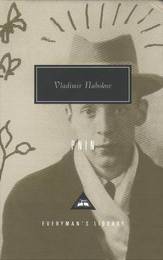
|
Pnin
Hardback
Main Details
| Title |
Pnin
|
| Authors and Contributors |
By (author) Vladimir Nabokov
|
|
Introduction by David Lodge
|
| Physical Properties |
| Format:Hardback | | Pages:192 | | Dimensions(mm): Height 212,Width 132 |
|
| Category/Genre | Modern and contemporary fiction (post c 1945) |
|---|
| ISBN/Barcode |
9781857152722
|
| Classifications | Dewey:813.54 |
|---|
| Audience | |
|---|
|
Publishing Details |
| Publisher |
Everyman
|
| Imprint |
Everyman's Library
|
| Publication Date |
15 March 2004 |
| Publication Country |
United Kingdom
|
Description
In this short but pungent and entirely characteristic novel, Nabokov tells the tragi-comic story of Professor Timofey Pnin - savant, emigre and linguist, happy in scholarship but disappointed in life and in love. With the lightest of touches the author sketches in a whole history from a few inconsequential episodes. A faculty party, a shipboard encounter, a series of rented rooms, give us the story coloured by fantastic humour and deep pathos. Published two years after Lolita and sharting that novel's pin-sharp observation and linguistic virtuosity, PNIN is an altogether gentler drama, recognizably descended from the fantastic humour of Gogol on the one hand, and the tender realism of Chekhov on the other.
Author Biography
One of the twentieth century's master prose stylists, Vladimir Nabokov (1899 - 1977) was born in St Petersburg, but left Russia when the Bolsheviks seized power. He studied French and Russian literature at Trinity College, Cambridge, then lived in Berlin and Paris, where he launched a brilliant literary career. In 1940 he moved to the United States, and achieved renown as a novelist, poet, critic, and translator. He taught literature at Wellesley, Stanford, Cornell, and Harvard. In 1961 he moved to Montreux, Switzerland, where he died in 1977. His first novel in English was The Real Life of Sebastian Knight, published in 1941. His other books include Ada or Ardor (1969), Laughter in the Dark (1933), Pale Fire (1962), the short story collection Details of a Sunset (1976) and Lolita (1955), his best-known novel.
Reviews"Nabokov writes prose the only way it should be written, that is, ecstatically." -- John Updike" * John Updike *
|